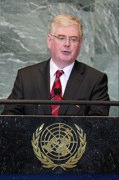-
Courses

Courses
Choosing a course is one of the most important decisions you'll ever make! View our courses and see what our students and lecturers have to say about the courses you are interested in at the links below.
-
University Life

University Life
Each year more than 4,000 choose University of Galway as their University of choice. Find out what life at University of Galway is all about here.
-
About University of Galway

About University of Galway
Since 1845, University of Galway has been sharing the highest quality teaching and research with Ireland and the world. Find out what makes our University so special – from our distinguished history to the latest news and campus developments.
-
Colleges & Schools

Colleges & Schools
University of Galway has earned international recognition as a research-led university with a commitment to top quality teaching across a range of key areas of expertise.
-
Research & Innovation

Research & Innovation
University of Galway’s vibrant research community take on some of the most pressing challenges of our times.
-
Business & Industry

Guiding Breakthrough Research at University of Galway
We explore and facilitate commercial opportunities for the research community at University of Galway, as well as facilitating industry partnership.
-
Alumni & Friends

Alumni & Friends
There are 128,000 University of Galway alumni worldwide. Stay connected to your alumni community! Join our social networks and update your details online.
-
Community Engagement

Community Engagement
At University of Galway, we believe that the best learning takes place when you apply what you learn in a real world context. That's why many of our courses include work placements or community projects.
UN Monitoring ICESCR
Monitoring of the implementation of the provisions of the ICESCR
The Committee on Economic and Social and Cultural Rights (CESCR) is the UN treaty body that monitors the implementation of the ICESCR by its State parties. The 18 CESCR members are independent experts that meet twice a year holding two three-week sessions in Geneva.
Under Article 16 and 17 of the Covenant, all States parties are obliged to submit regular reports to the Committee on how the rights are being implemented. States must report initially within two years of accepting the Covenant and thereafter every five years outlining the legislative, judicial, policy and other measures which they have taken to ensure the enjoyment of the rights contained in the Covenant. States parties are also requested to provide detailed data on the degree to which the rights are implemented and areas where difficulties have emerged. The UNCESCR has developed a set of searching questions, to establish compliance under Art 11(3) of the Covenant. Indeed, these could constitute the basis of an evaluation method of the effectiveness and equity of any housing policy. See UN Doc. E/C, 12/1991/.
The Committee examines each report and addresses its concerns and recommendations to the State party in the form of “concluding observations”, which constitutes the decision of the Committee regarding the status of the Covenant in a given State party. Search herefor the concluding observations issued by the CESR, (put CESR in the "Convention" field and Concluding/Observations in the "Type" field.)
A selection of State reports and concluding observations related to Article 11 are available at the Feantsa website here.
The Optional Protocol to the International Covenant on Economic, Social and Cultural Rights
In 1996, the UNCESCR proposed a draft optional protocol for individual complaints under ICESCR to be made directly to UNCESCR, in the same way as the Council of Europe Collective Complaints system operates for NGOs.
See UN Doc E/CN.4/1997/105, 18 December 1996, Commission on Human Rights, Fifty-third session, Draft optional protocol to the ICESCR.
See further e/cn.4/1999/112 paras 1–2. Economic and Social Council, Commission on Human Rights. Fifty-fifth Session and
UN Doc. E/CN.4/2001/62/Add.1. Sweden, paras 2–3
The Optional Protocol to the International Covenant on Economic, Social and Cultural Rights has now been adopted by the UN and a number of States have ratified it. See General Assembly Resolution, A/RES/63/117.
On March 7th, 2012, the Tánasite and Minister for Justice announced that Ireland will sign, subject to ratification, the Optional Protocol to the International Covenant on Economic, Social and Cultural Rights.
















